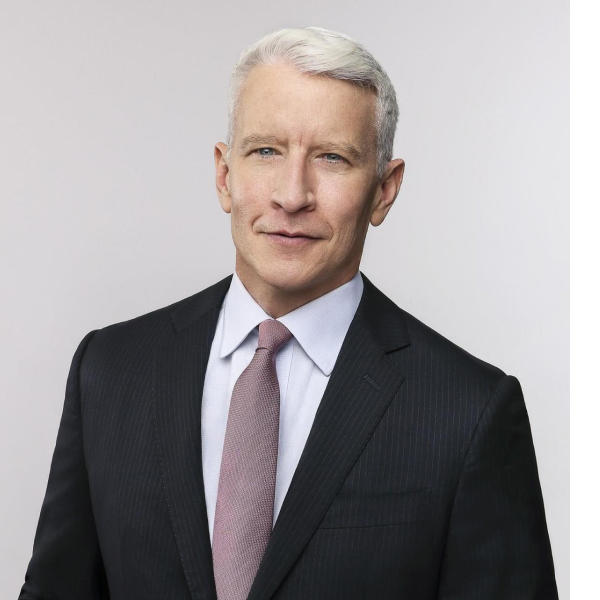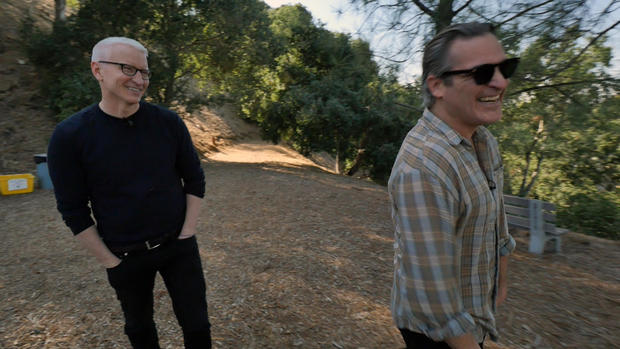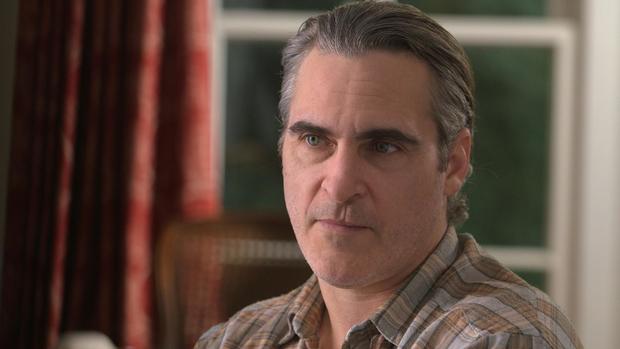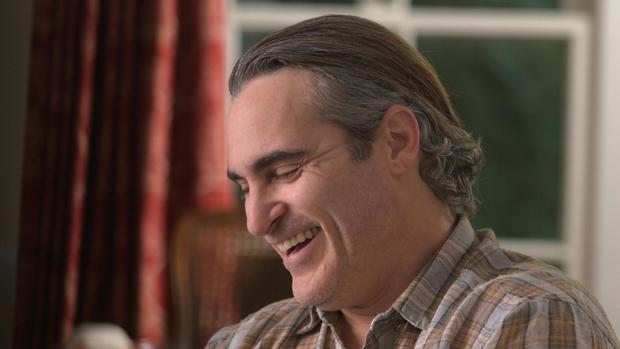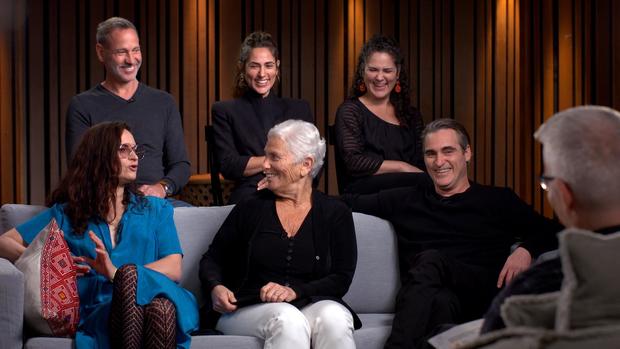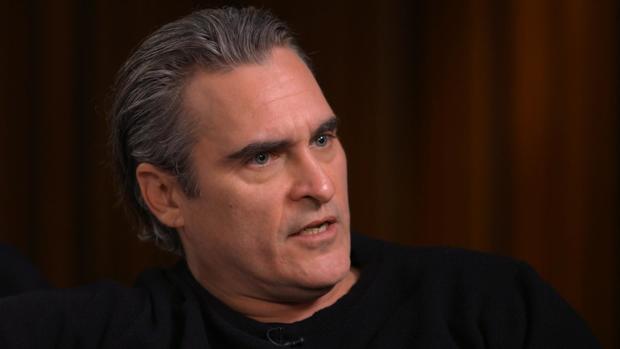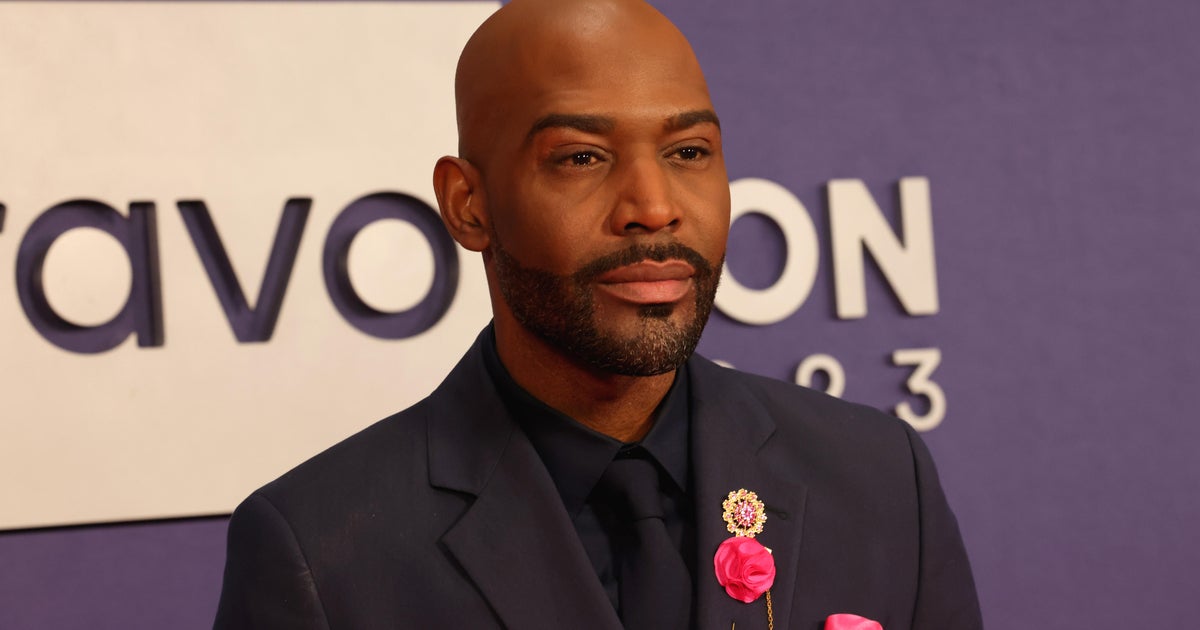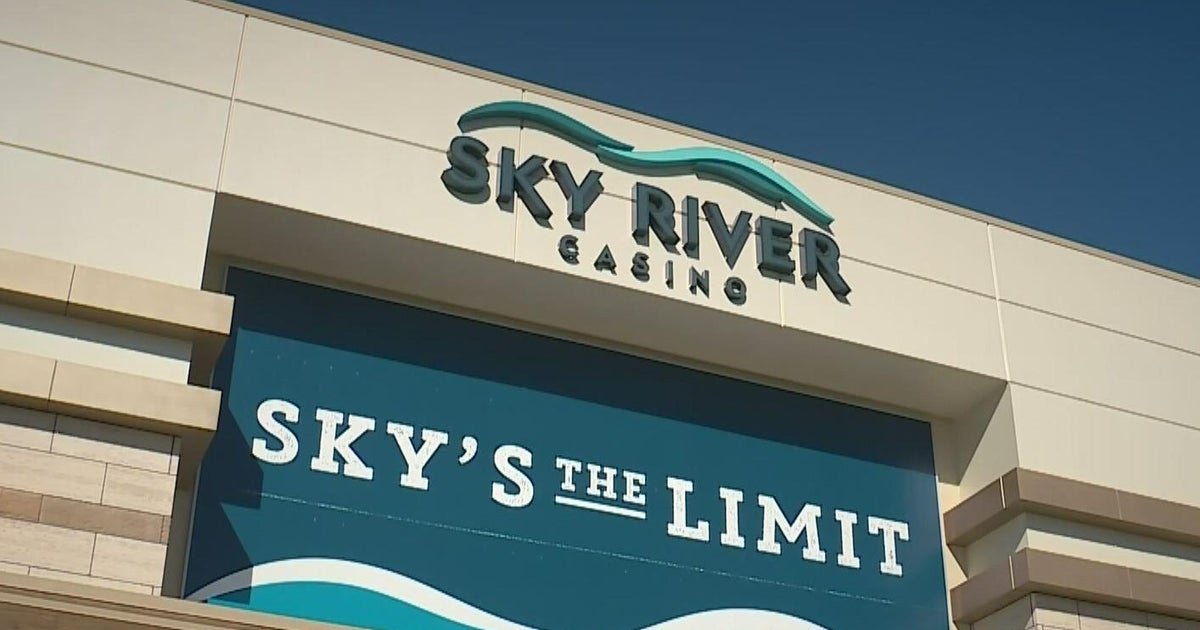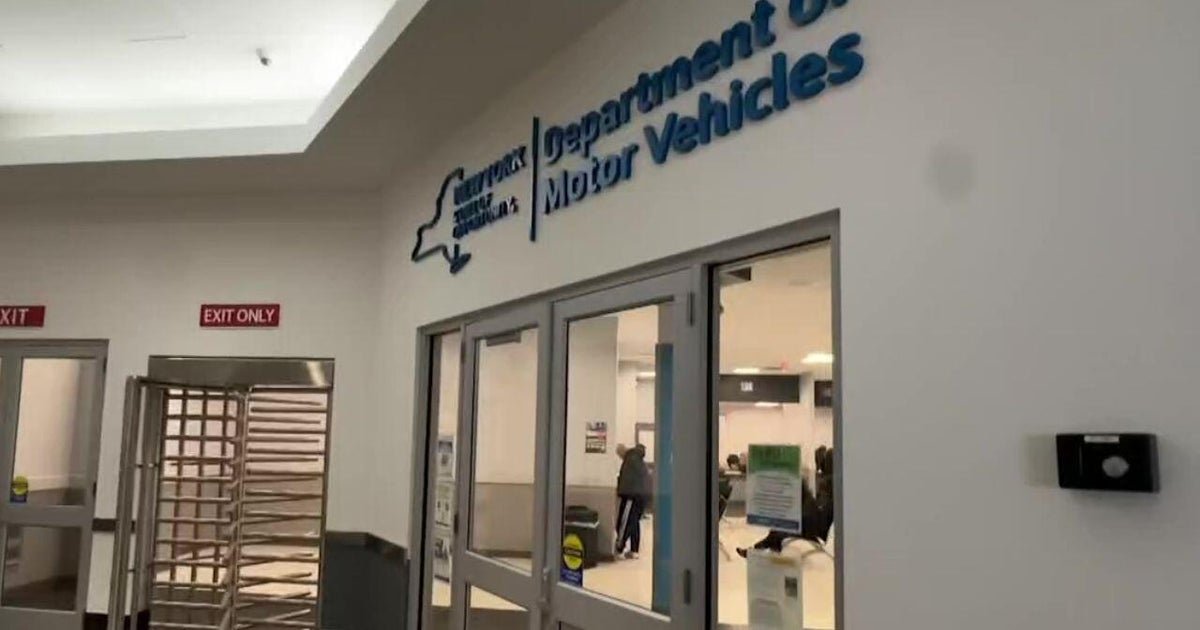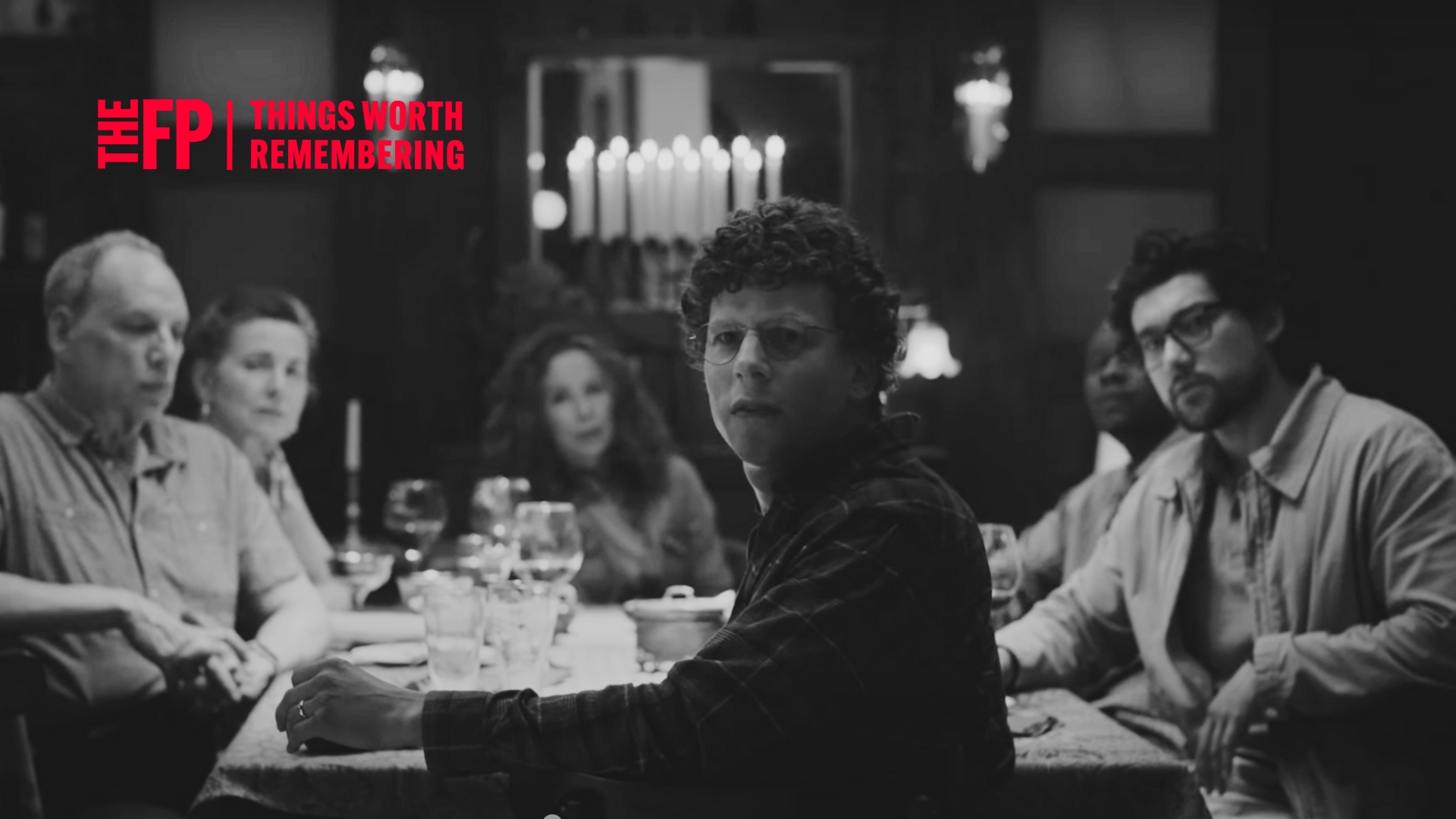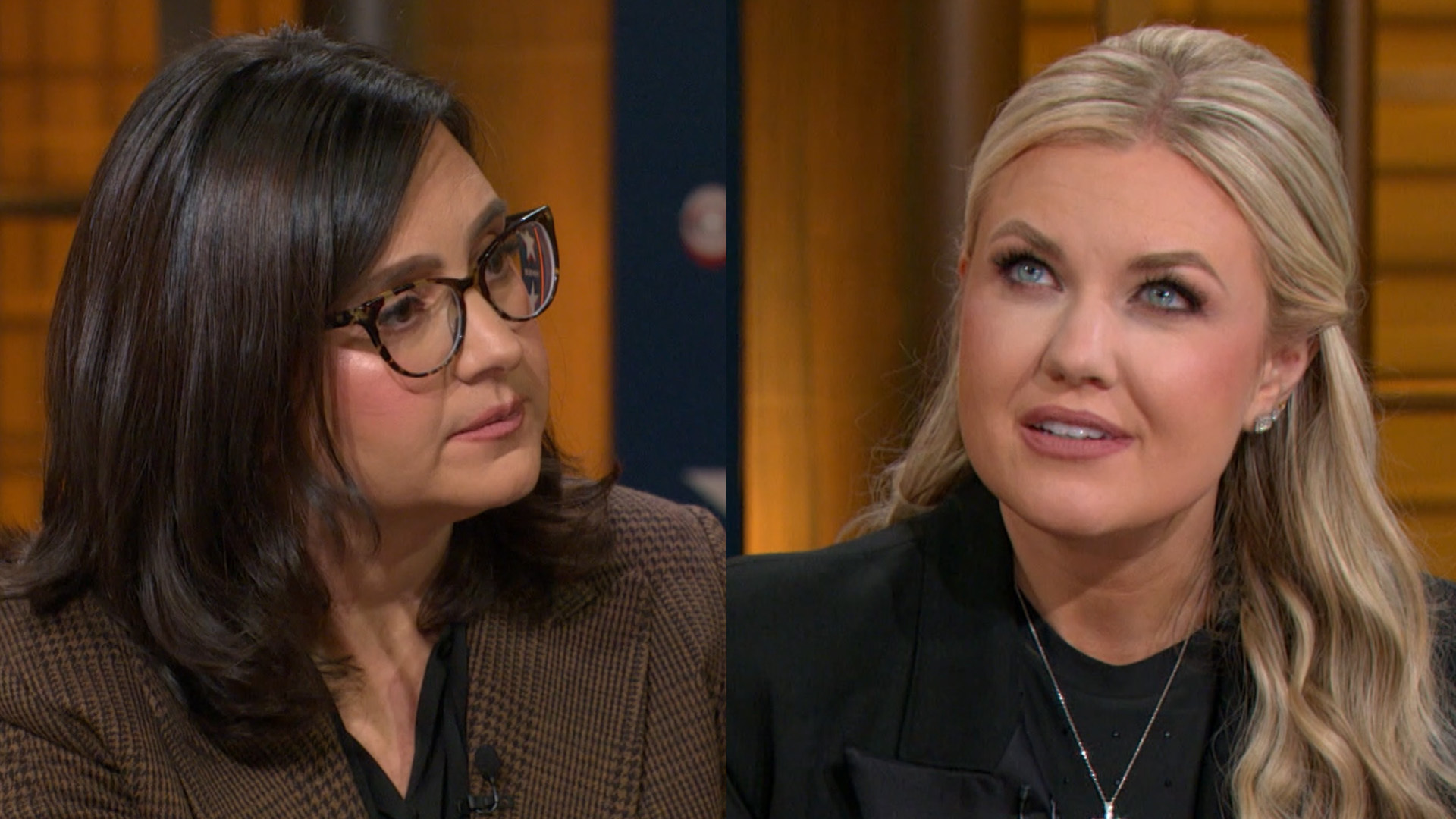Joaquin Phoenix: A three-decade career filled with dark, complicated characters
If all you know about Joaquin Phoenix is the parts he's played, you might think he'd be aloof, maybe even disturbed. During his nearly four decades as an actor, dark, complicated characters have become something of a trademark. We first brought you this story in January, just before Phoenix won his first Oscar for his role as the mentally ill clown turned deranged killer Arthur Fleck, in "Joker." It's a daring and complex performance that earned Phoenix acclaim and controversy. Phoenix has a reputation for being difficult in interviews, and we weren't sure what to expect when we met him in Los Angeles. What we found was a shy, wry, welcoming actor who wasn't entirely sure he wanted to talk with us at all.
- Joaquin Phoenix and family on River Phoenix's legacy and influence
- Why do awards make Joaquin Phoenix uncomfortable?
Anderson Cooper: Do you like being interviewed? 'Cause it doesn't seem like, from other interviews I've read, that you like it.
Joaquin Phoenix: It's alright. But it's not something-- if I had, like, the choice of, like, four different activities, I don't think (LAUGH) it'd be one that I would choose.
Anderson Cooper: This-- this would not be one of them?
Joaquin Phoenix: No. Um.
Anderson Cooper: One person we talked to who-- who knows you says that-- you're a wonderful actor and a terrible movie star. Is that--
Joaquin Phoenix: Who is this person? I-- (UNINTEL)
Anderson Cooper: I'm-- but I'm not gonna say.
Joaquin Phoenix: Oh, please, you'd be interested-- (LAUGH) What does that mean?
Anderson Cooper: It means that you're not interested in the trappings of being a movie star. You don't have an assistant. You-- you're not on social media.
Joaquin Phoenix: Well, hold on. B--
Anderson Cooper: And-- and you're not in a-- living in a mega mansion somewhere and driving, you know, Lamborghinis around.
Joaquin Phoenix: Um, the Lamborghini's in the shop.
Unlike many actors, Phoenix isn't surrounded by an entourage, just his two curious dogs, Soda and Oscar. He leads a relatively quiet life in the Hollywood Hills, unexceptional except for the fact he's widely considered one of the most talented actors of his generation.
He's played Jesus. And Johnny Cash. A cunning emperor in "Gladiator" and a struggling loner in "The Master."
Joaquin phoenix has appeared in more than 30 films. And has already received three oscar nominations. They say success breeds confidence, but phoenix is still plagued by self doubt.
Anderson Cooper: Do you get nervous?
Joaquin Phoenix: Yeah, yeah, absolutely.
Anderson Cooper: On a set?
Joaquin Phoenix: Yes, petrified.
Anderson Cooper: What are you petrified about? I mean, you're-- you've been doing this for 30-plus years.
Joaquin Phoenix: Yeah. There are so many things that I want to express, like, when I take on a role. And I go through the script I-- just, like, full of ideas. And so I guess I'm just nervous that I'm not gonna be able to-- to find the right kinda space to express that.
He's been known to get testy when asked about his acting process. We tried anyway.
Joaquin Phoenix: It's difficult to talk about because I don't really understand it, right? I'm just trying to articulate something for you, but I don't--
Anderson Cooper: Isn't it the fact that you didn't quite understand it that makes it so compelling?
Joaquin Phoenix: Yes. And it's what makes doing interviews so frustrating, right? Because it is-- there's a certain mystery that I love and I appreciate-- and I'm comfortable with.
His characters however, are often uncomfortable to watch.
Especially his most recent role as Arthur Feck in "Joker." Phoenix transforms from a troubled, lonely clown into a murderer.
Joaquin Phoenix: There were times where I really felt for him. And there were times where I was disappointed and repulsed by his behavior, right? And I-- I liked that.
Phoenix spent months talking through the script with his director, Todd Phillips. But the one thing he's loathe to do is rehearse with other actors.
Joaquin Phoenix: It just-- it feels impossible to me.
Anderson Cooper: What do you mean "impossible?"
Joaquin Phoenix: I don't know, it's-- it just feels so fake.
Anderson Cooper: Mmm.
Joaquin Phoenix: I mean, the great thing about shooting a movie is shooting multiple takes, and you use editing and so you grab those best moments. So I'd rather discover those moments while we're working, than in the rehearsal process, and then feel like, "Oh, that was really good what we did. How do we recreate that?"
Those moments he discovers while filming are often unscripted and unexpected. Like a pivotal scene in "Joker" just after he commits his first murder. The script simply called for Phoenix to hide his gun in a bathroom.
Joaquin Phoenix: It felt like the character had moved way past that. And that there-- there was the-- the opportunity to express something else. But I didn't know precisely what that-- what that was.
Director Todd Phillips played him some cello music that had been composed for the film. And that sparked an idea.
Joaquin Phoenix: And I thought there was some kind of, some kind of movement, that it was like some physical transformation right, metamorphosis.
As the cameras rolled, he found himself marking that metamorphosis into a killer with this haunting and macabre ballet.
Anderson Cooper: There is an intensity to-- all the characters you've been playing.
Joaquin Phoenix: Yeah, which I love. I think oftentimes people feel like I identify and I'm expressing something of my own experience through the character. I think it's the opposite. I think it's because oftentimes the characters, have these lives and experiences that are so foreign to me that it-- it breaks my heart.
That may be one of the most surprising things about Joaquin Phoenix. He is not his characters. He's incredibly close to his family, and seems most relaxed when he's with them.
Anderson Cooper: What was Joaquin like as a child? (LAUGH)
Joaquin Phoenix: Be very, be very careful. Be very careful with this mom--
Rain Phoenix : I think we all should answer this one at a time.
Joaquin Phoenix: Yeah, (LAUGH) From my perspective, I was a terror.
Anderson Cooper: (LAUGH) You were a terror?
Joaquin Phoenix: Yeah, but I was hoping you guys were gonna go, like, "That's not true."
Heart Phoenix: That is so not true!
Joaquin Phoenix: I know, thanks guys. I know. (LAUGH)
He has three sisters: Rain, Liberty and Summer. That's his stepdad Jeffrey and his mom, Heart. If those names didn't tip you off, the Phoenixes were a band of hippies. They had little money but deep convictions. Heart and their late father, John Lee Phoenix, homeschooled the kids and in the 1970's they moved around constantly. For two years, they lived in Venezuela with a cult called the Children of God.
Joaquin Phoenix: Yeah they obviously don't advertise themselves as a cult or else nobody would join, right? So it seemed like it was this community.
Anderson Cooper: You really did not have much of anything. Is that fair to say--
Heart Phoenix: We were ministers. We were just living on the road and we-- shared our truth and we would get donations.
But by 1977, they say they'd grown disillusioned with the cult and moved back to the U.S., eventually settling in Los Angeles with no money and no real plan. The Phoenix kids started performing on the streets. That's 7-year-old Joaquin on the right. Next to him, his older brother River Phoenix.
River was the first to get into acting and became a star in the hit film stand by me.
Joaquin was ten when he landed his big break on an episode of "Hill Street Blues."
Anderson Cooper: What do you remember about it?
Joaquin Phoenix: I remember that-- are you guys gonna play the scene on this thing? And then I'm gonna answer it and it's gonna be--
Anderson Cooper: You know what? (LAUGH) Television is a visual medium. So, I mean--
Joaquin Phoenix: My memory is that. I felt like my entire body was buzzing. There was a certain kind of-- power that, right? I was in a room full of adults, and I felt that-- I had, like-- affected them. Like, I-- I had-- I had changed how they were feeling.
Anderson Cooper: We'll, you punched one of them.
Joaquin Phoenix: Well-- (LAUGH) it wasn't--
Anderson Cooper: I'm sure you changed how she was feeling.
Joaquin Phoenix: --it wasn't real. It wasn't real, Anderson.
As a teenager, Joaquin became surprisingly picky about the roles he took and didn't act much. His brother, River Phoenix, had become a household name and, at 18, was nominated for an Oscar. But in 1993, it all ended. River Phoenix died of a drug overdose outside a Hollywood club. Joaquin and Rain Phoenix were with him. He was just 23. The family has rarely spoken about his death publicly.
Joaquin Phoenix: We were so removed from kind of the entertainment world. We didn't watch entertainment shows. We didn't have the entertainment magazines in our house. You know, w-- I mean, River was a really substantial actor and movie star, and we didn't really know it. And so during that time in which you're most vulnerable, there are helicopters flying over. There are people that are trying to sneak onto your land. Certainly, for me, it felt like it impeded on the mourning process, right?
Heart Phoenix: The grieving process happens out of nowhere, you know? I'll be driving and all of a sudden, I will feel it. And I'll just welcome it
Anderson Cooper: Even now?
Heart Phoenix: Oh yeah, I mean--
Anderson Cooper: There's no timeline for grief--
Heart Phoenix: --I mean, there is no timeline or no place where, you know. It just happens. And I-- and I welcome it.
The family has found creative ways to honor River's life.
His sister Rain, a musician, just released an album dedicated to river and the family runs a non-profit organization named after him that works on social justice issues and conflict resolution. Joaquin says he's felt his brother's presence throughout his career, which has been wildly successful and often unconventional.
A decade ago, Joaquin made a fake documentary about his own life called "I'm Still Here."
It was meant as a critique of fame and as part of the film, he announced he was quitting acting to become a rapper.
It was all an act, but hardly anyone knew. Phoenix kept up the facade in public for more than a year. You may remember this disastrous appearance with David Letterman.
David Letterman: You're not going to act anymore?
Joaquin Phoenix: No.
David Letterman: Why is that?
Joaquin Phoenix: Hmm, I don't know. I mean.
[LAUGHTER]
David Letterman: So you have given it some thought.
There were rumors he was on drugs or having a breakdown. The film was a flop, but Phoenix says it made him a better actor. Less afraid to make mistakes.
Joaquin Phoenix: I think what I didn't know is how much it would impact and influence my career as an actor.
Anderson Cooper: What is the impact?
Joaquin Phoenix: There's something liberating about public humiliation.
Anderson Cooper: So, to go through that sort of crucible is freeing in a way?
Joaquin Phoenix: Yeah, I mean, look-- can't get much worse, right?
Far from it. "Joker" has brought in more than a billion dollars so far and is the highest grossing R-rated movie of all time. Success fueled in part by controversy. Some people thought the film glorified a killer. Others saw it as a case study of mental illness, and society's failures to address it.
Joaquin Phoenix: I've described it as, like, a Rorschach Test. It says something about the person viewing it and what they think that it's about. That's really rare for a film to kind of have that effect on people. So in some ways, I welcomed it.
Phoenix is already working on another film. When we last saw him, it was one of his few moments of downtime and he was more than ready to see us leave.
Anderson Cooper: So when you're not working what do you-- what do you do? I mean, do you like having time off?
Joaquin Phoenix: I do. Yeah, I love it. I feel very comfortable with time off. What do I do? I-- I think I do normal things. I like to cook. I really don't want to talk about what I do.
Anderson Cooper: Ok, fine, fine.
Joaquin Phoenix: You know what I mean, because I just feel like I go like 'I like to cook, I like to go see movies with my girlfriend.' And I just go like. But I mean I-- I-- you know, I think I have very basic, like, needs.
Anderson Cooper: Yeah, never mind, I don't care.
Joaquin Phoenix: Even better. (LAUGHTER)
Produced by Nichole Marks and David M. Levine. Associate producer, Jacqueline Kalil. Edited by Craig Crawford.
